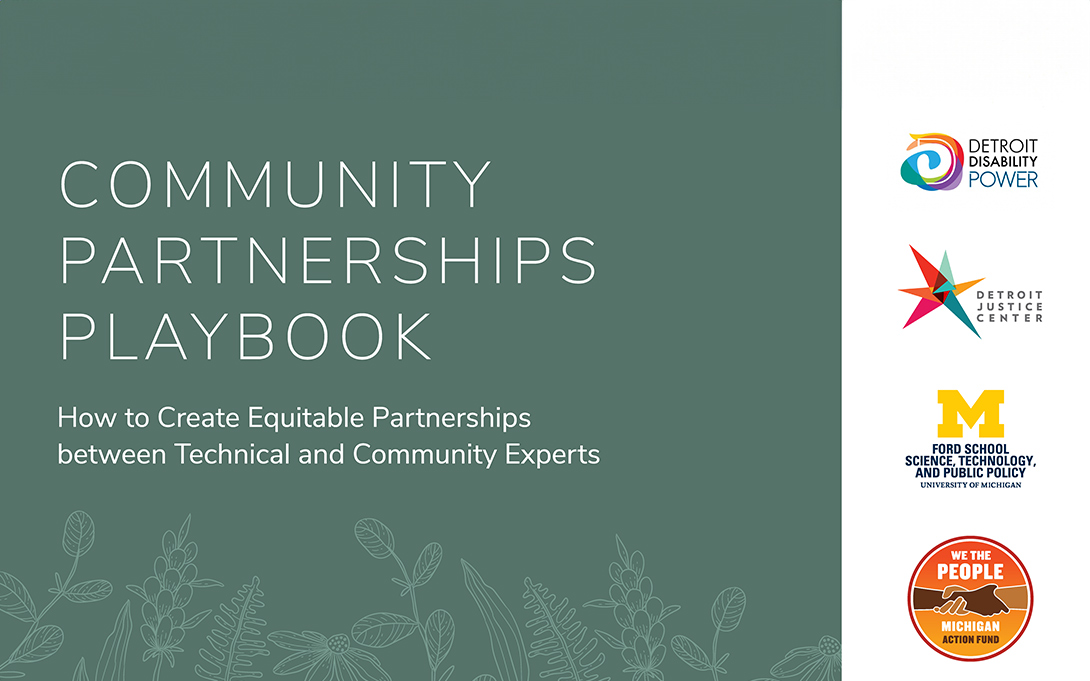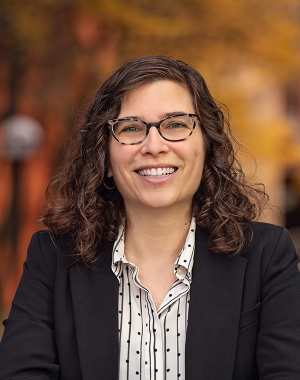
Register for the Community Partnerships Playbook webinar
As the popularity of community engagement grows among technologists and academics, it is vital to ensure that they engage communities in ways that benefit the people they claim to serve and do not cause harm.
The Community Partnerships Playbook: How to Create Equitable Partnerships Between Technical and Community Experts is a new publication from the University of Michigan’s Science, Technology, and Public Policy program (STPP) in collaboration with three community-based non-profit organizations: Detroit Disability Power (DDP), Detroit Justice Center (DJC), and We the People Michigan (WTPMI). The Playbook brings together advice from staff at DDP, DJC, and WTPMI who have had a range of both positive and negative experiences with researchers, academics, and technologists, along with insights developed from STPP’s Community Partnerships Initiative (CPI) and up-to-date scholarly literature.
The Playbook’s purpose is to guide researchers while supporting and lending authority to community organizations as they advocate for partnerships that will benefit their constituencies. The Community Partnerships Playbook aims to provide some answers to such questions as: How can technologists and scientists engage communities in a spirit of partnership, without engaging in extractive practices? How can community organizations work with researchers in ways that benefit their communities and expand their capacity, rather than burdening their staff?
Throughout the playbook, the co-authors provide real world examples from both sides of community partnerships. It is designed to empower both researchers and community organizations.
STPP managing director Molly Kleinman: “We hope this playbook will improve partnership experiences for everyone, both community organizations and researchers, to help create more equitable technologies that serve the public interest,”
Playbook co-author Eric Welsby, advocacy director at Detroit Disability Power: “These partnerships give us the opportunity to combine a university’s research knowledge with our boots-on-the-ground experience, and get us access to expertise that we don’t necessarily have in the organizing world.”
This project was supported by a grant from the John D. and Catherine T. MacArthur Foundation. The John D. and Catherine T. MacArthur Foundation supports creative people, effective institutions, and influential networks building a more just, verdant, and peaceful world. MacArthur is placing a few big bets that truly significant progress is possible on some of the world’s most pressing social challenges, including advancing global climate solutions, decreasing nuclear risk, promoting local justice reform in the U.S., and reducing corruption in Africa’s most populous country, Nigeria. In addition to the MacArthur Fellows Program and the global 100&Change competition, the Foundation continues its historic commitments to the role of journalism in a responsive democracy as well as the vitality of our headquarters city, Chicago.
